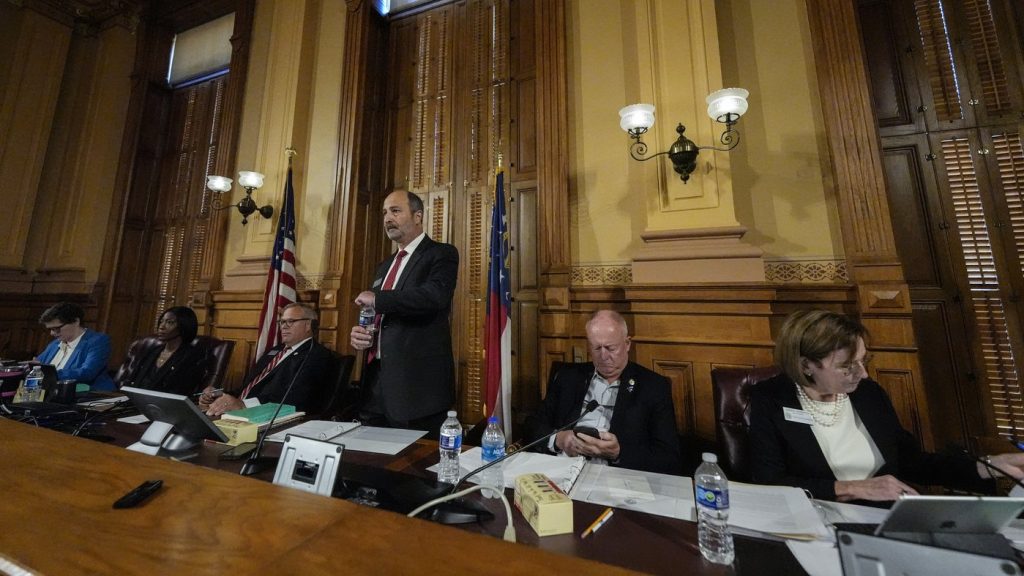ATLANTA (AP) - Georgia's highest court has unanimously ruled that the State Election Board exceeded its authority when it implemented four election rules just before the 2022 general election. The state Supreme Court's decision, announced on Tuesday, effectively curtails the rulemaking power of the State Election Board and other executive branch agencies in Georgia, emphasizing that lawmaking is a power reserved for legislators under the state constitution.
In the wake of a controversial election process following the narrow loss of former President Donald Trump in Georgia during the 2020 elections, the State Election Board had introduced these new rules in August and September. These rules primarily addressed processes following the casting of ballots and were met with a plethora of legal challenges. The board, which has a Republican majority supported by Trump, claimed that the changes were necessary to enhance the accuracy of election results, amidst allegations from Trump about electoral fraud which he claimed had cost him victory.
Fulton County Superior Court Judge Thomas Cox had previously found that seven of the rules were "illegal, unconstitutional and void" in October. The State Election Board appealed this ruling, which led to the Supreme Court's involvement. The court's decision invalidated several controversial requirements, including the stipulations that ballots must be hand-counted after polls close and a mandate that individuals delivering absentee ballots in person provide both a signature and photo identification. The court also overturned rules that allowed county election board members to conduct "reasonable inquiries" before certifying results and provided them with broad access to election-related documents.
However, the court did uphold a rule mandating video surveillance of ballot drop boxes after polls close during early voting. Additionally, they instructed a lower court to determine whether James Hall, a member of the Chatham County Board of Elections, has the standing to challenge two other contested rules that expand the areas where partisan poll watchers can observe and that require daily public updates on early voting totals.
Interestingly, the ruling also overturned a previous decision from 1990 that had broadened state agencies' rulemaking powers. Chief Justice Nels Peterson noted that this earlier ruling was a misstep as it lacked clear guidelines to restrict an executive branch agency's discretion, echoing a similar recent ruling by the U.S. Supreme Court which dismissed the Chevron doctrine that had allowed federal agencies considerable authority in interpreting laws to create regulations.
Scot Turner, a former state representative and one of the challengers of the contested rules, welcomed the court's decision, suggesting it serves to limit the influence of "unelected bureaucrats." He emphasized that this ruling clarifies the legislative powers belong to the General Assembly, not the executive branch acting without proper restrictions. The court's analysis highlighted concerns regarding the unfettered discretion exercised by the State Election Board, particularly in regard to rule interpretations that could delay election certification processes.
The court pointed out inconsistencies in the board's rule requiring the hand counting of ballots, stating it contradicted state law that mandates ballots to be tabulated immediately after polls close. Additionally, it ruled against the requirement for signatures and photo IDs for absentee ballot deliveries, asserting that this condition was a new requirement not stipulated by existing laws.
The implications of this ruling resonate with ongoing debates about election integrity and the powers held by election boards in the context of legislative authority. The court has clearly delineated the boundaries of executive power in shaping election laws and procedures, reinforcing the principles of checks and balances within Georgia's government structure.











